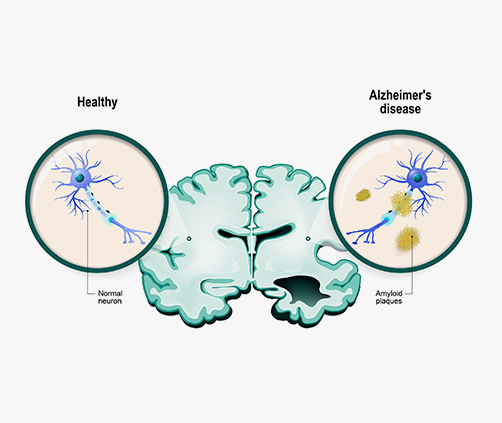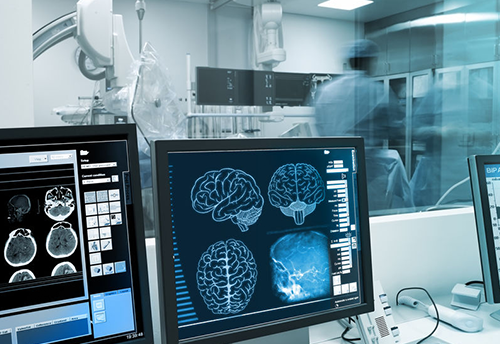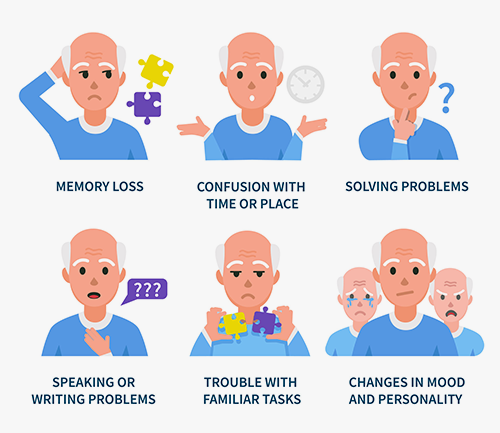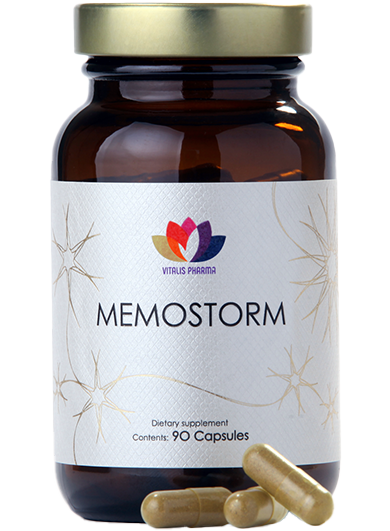Dementia – a growing health and social problem
Dementia in the elderly is an epidemic of unprecedented proportion and crisis in modern medicine. Dementia is a general term that describes progressive, degenerative brain changes that affect memory, thinking, communication skills, and personality behavior related to the gradual death of brain cells.
Years ago, dementia often was called “senility.” It was even thought to be a normal part of aging. Now we know that it’s not normal. It’s caused by ongoing damage to the cells in the brain.


Symptoms of dementia differ depending on which parts of the brain are affected and the stage of the disease. The most common symptoms of dementia include:
• Memory loss, including trouble with directions and familiar tasks
• Language problems, such as trouble getting words out or understanding what is said
• Difficulty with planning, organizing, concentration, and judgment
• Changes in behavior and personality
Dementia is a progressive disease, and it gets worse over time. Symptoms are different for each person, but there are 3 basic stages, and each may last from months to years:
• In the early stage, a person may seem forgetful, confused, or have changes in behavior. However, the person still is able to handle most tasks without help.
• In the middle stage, more and more help is needed with daily tasks. A person may have trouble recognizing friends and family members, wander, or get lost in familiar places. The person may also become restless or moody.
• In the late stage, Alzheimer’s can cause severe problems with memory, judgment, and other skills. Help is needed with nearly every aspect of daily life.


According to World Health Organization statistics over 47,5 million people worldwide are living with dementia. And according to the world Alzheimer Report this number will estimate to increase to 74.7 million by 2030 year.
READ NEXT: Alzheimer’s disease
MEMOSTORM
MEMOSTORM provides strong memory support, promotes mental abilities, brain cell regeneration and well-being.
MEMOSTORM is a food supplement extracted from natural products.
MEMOSTORM is a food supplement registered in the EU and Switzerland.

